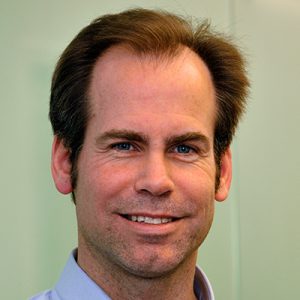Dennis E. Discher
Robert D. Bent Professor
Contact
Tel: 215-898-4862
Email: discher@seas.upenn.edu
Research Website | Publications
About
Discher is the Robert D. Bent Professor at the University of Pennsylvania and Director of the NCI (National Cancer Institute) Physical Sciences Oncology Center/Project at Penn. He holds appointments in SEAS and in Graduate Groups in Pharmacology and in Physics. His efforts at Penn to increase diversity, equity, & inclusion (DEI) start with his lab’s >60 PhD students and Fellows, which have included significant diversity (15% Latino, 20% female). It extends to creation of Faculty Mid- career Awards with DEI criteria for the Biomedical Eng’g Society (BMES)/Cell & Molecular Bioengineering (CMBE) group and for the Biophysical Society’s Mechanobiology subgroup, as well as annual projects over the past decade for summer research by Philadelphia High School Teachers and Undergraduates from around the US (>30% African American). Service to science and engineering includes numerous roles in CEMB, the American Society of Cell Biology (ASCB), and the Biophysical Society, as well as multiple National Academies (NASEM) Committees and NIH grant reviews including chairperson (Phys Sci Oncology, Gene & Drug Delivery, etc.) and Editorial Board service for Molecular Biology of the Cell, PNAS & PNAS Nexus, and Science.
Research Interests
Research efforts and papers range in topic from the soft-physics biology of stem cells, cancer genetics and nuclei to cardiomyocyte/heart development and controlling ‘Self’ recognition via engineered macrophages, nanoparticles, and peptides. Molecular, cellular, and organism-level methods range from gene engineering (CRISPR, CRISPRi..) to fluo-reporters of single cell genetics and materials/mechanics approaches to controlling genome integrity, differentiation, and tumor growth in mouse models. Fundamentals lead to application in disease, particularly against cancer. The lab’s most cited work is a top-5 cited research paper in Cell since publication: ‘Matrix elasticity directs stem cell lineage specification’, where the lab made hydrogels that align with tissue stiffness. He and his lab have coauthored >250 publications with >80,000 citations, and papers in Science, Cell, PNAS, Journal of Cell Biology, and various Nature journals. Many of his trainees have gone on to faculty positions around the US and the world (e.g. UCSD, UT Dallas, Carnegie Mellon U, UI Chicago, U Tennessee, U Mass Amherst, Flordai State, U Manchester, IIT Bombay/Mumbai, Univ Grenoble, …), and many trainees have also achieved in biopharma (Merck, Amgen, J&J, Genentech, Abbvie, Gilead, Illumina, etc.) and multiple startup companies.
Soft Matter and Complex Fluids; Cellular and Biomolecular Engineering; Molecular Simulation and Thermodynamics
Educational Background
Ph.D.: U.C. Berkeley and U.C. San Francisco
Awards
Discher is an elected member of the US National Academy of Medicine, the US National Academy of Engineering, and a Fellow of the American Assoc’n for the Advancement of Science. He is recipient of the Shu Chien Scientific Achievement Award from the Cell & Molecular Bioengineering (CMBE) group of the Biomedical Eng’g Society (BMES). Additional honors include Indian Institute of Technology Mumbai Institute Lecture, Richard Skalak Lecture, University Distinguished Lecture – Huazhong Univ. Science & Technology (HUST), Novartis Lecture – Chemistry, UT Austin, Lindsay Lecture – Chem Eng’g., Texas A&M, Nikon Lecture – King’s College London, Barry Berman Memorial Lecture – Physics, George Washington U., Charles Edison Lecture – Notre Dame, Ashland Inc. Distinguished Lecture – U. Kentucky, Grodins Lecture – Biomedical Eng. USC, Anbar Lecture – Physiology & Biophysics, U.Buffalo, Melville Lecture – Chemistry, Cambridge U. Further honors include: Distinguished Alumnus Award UC Davis College of Eng’g. Highly Cited Researchers (Pharmacology 2014-16), Institut Jacques Monod LabEx Fellow, Paris, AIChE Annual Meeting Plenary Award Lecture of the Food, Pharma, & Bioeng’g. Division, Friedrich Wilhelm Bessel Award from the Alexander von Humboldt Fdn. of Germany, Jorge Heller Outstanding Paper Award from Journal of Controlled Release, Presidential Early Career Award.

